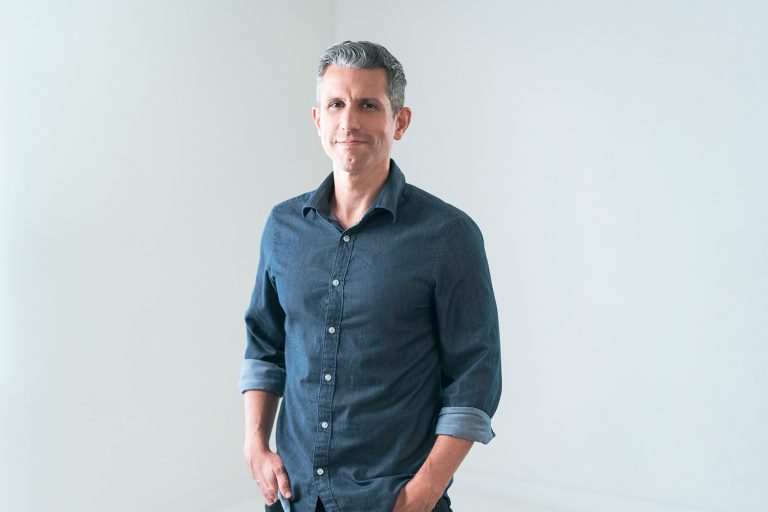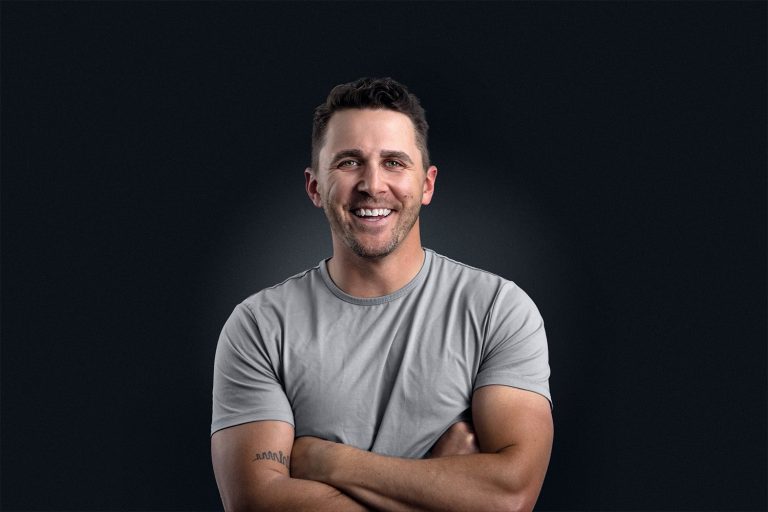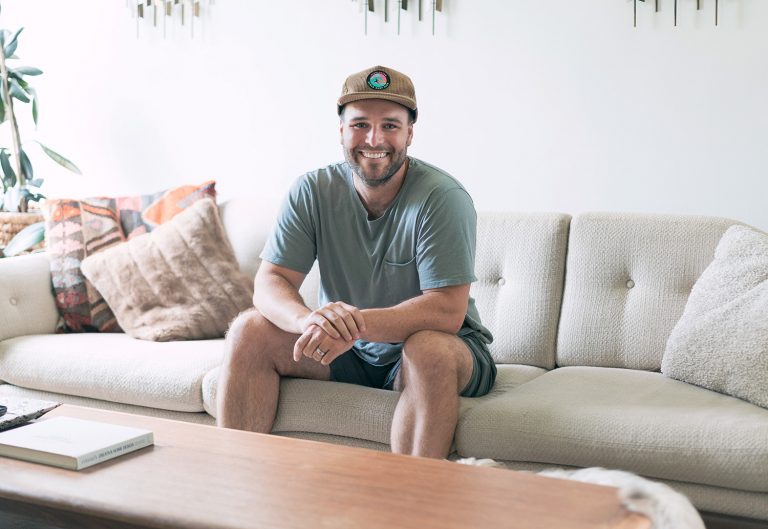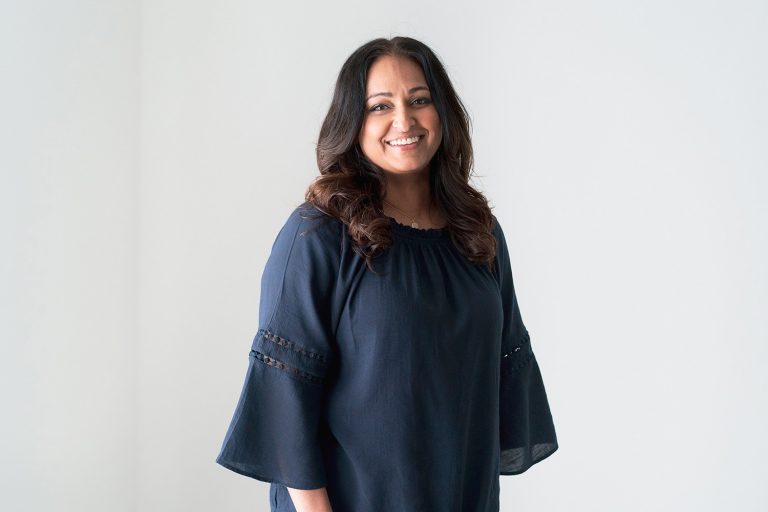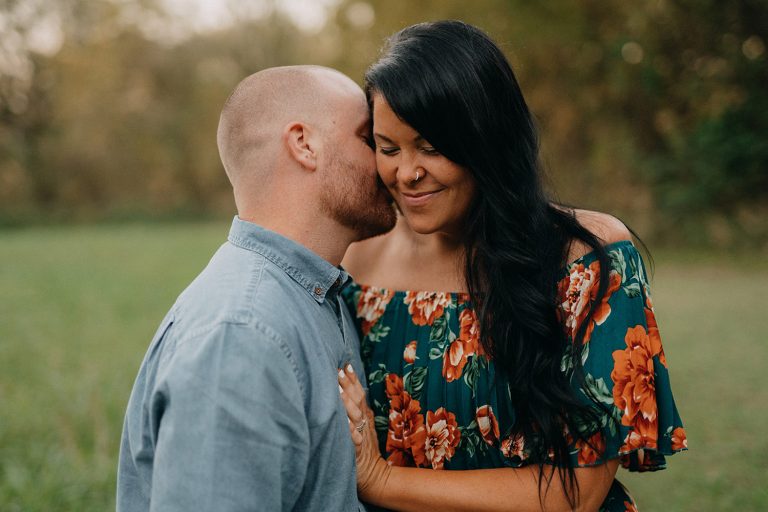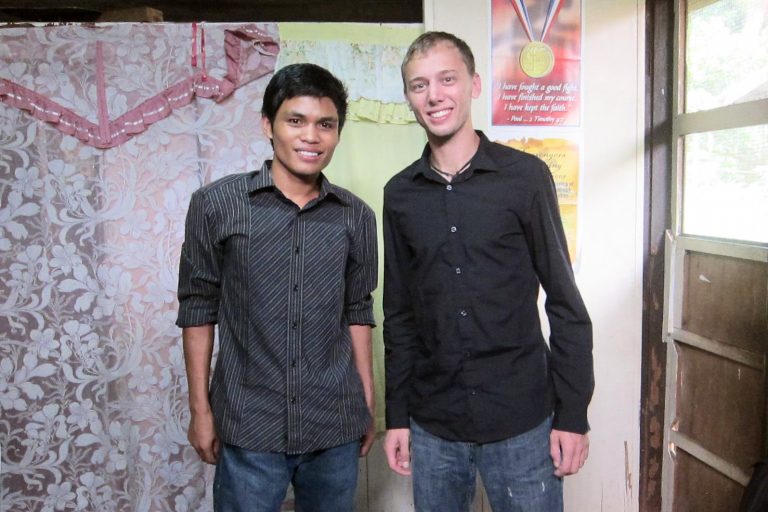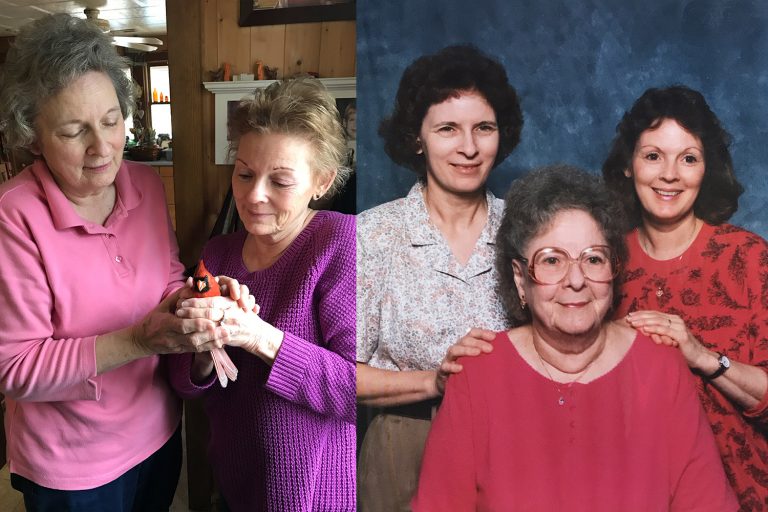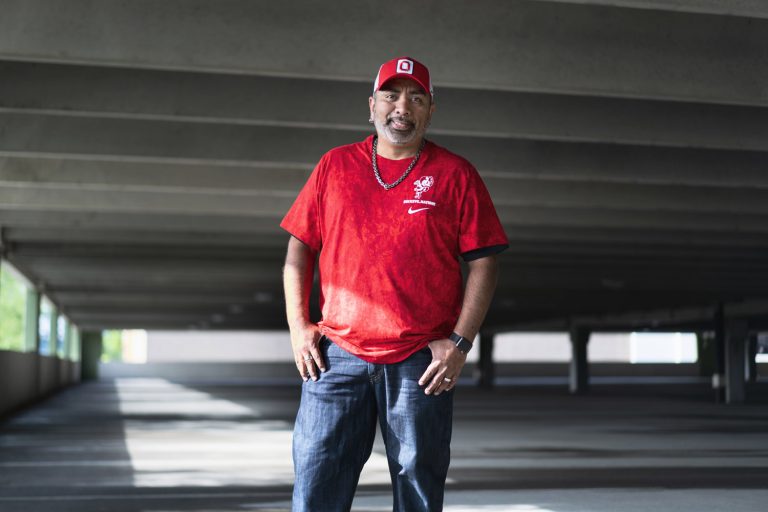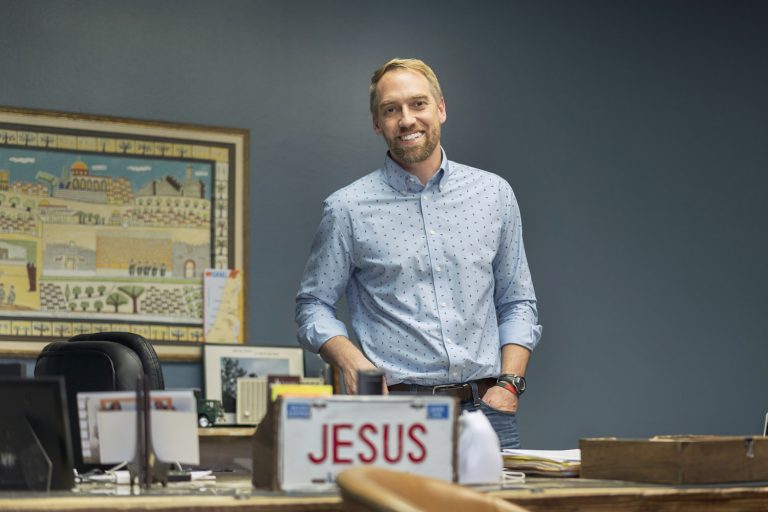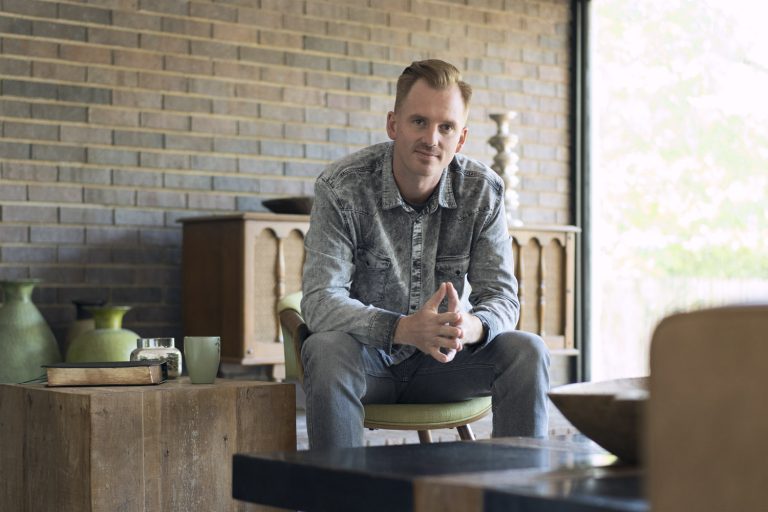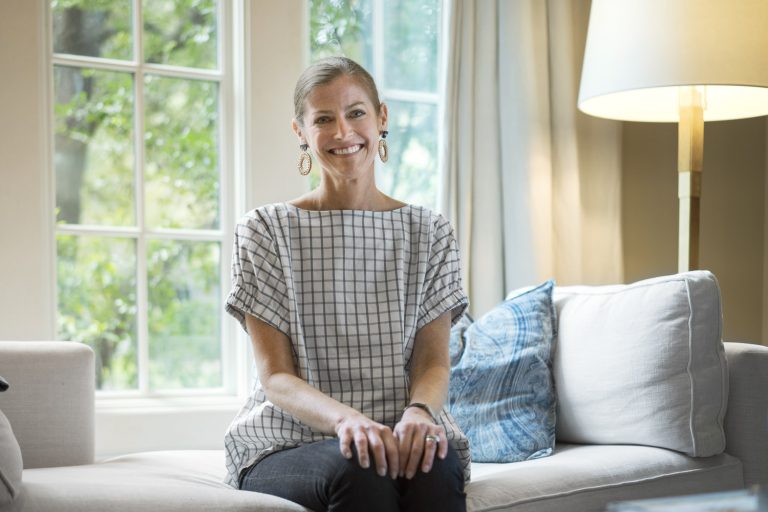jim
Theology of suffering
Hi, my name is Jim Barnard. I’m a pastor, a coach, an author, and a speaker. All of that seems weird to say out loud, none of that is what I would have chosen in my life. But that’s what God has given me over the years. I’m a kid from Wisconsin, but I live in Denver, Colorado, now. I am married. I have a beautiful wife, Alisha, and a 13-year-old son Anderson. And it’s been a crazy ride to be a husband and a parent. I love what God has given me there. To start my story, I have to start as a kid in Wisconsin, I grew up in a broken family.
Fortunately, as an early teenager, I met Jesus and he changed everything. I joke around that I was this quiet, sad sack of a kid who never talked. And then in high school, I was voted class clown, this kid who would never stop talking. That’s the transformation that Jesus made in my life and was really grateful, for what he did. Graduating from college, I almost packed up my car to move out to Colorado, because my only ambition in life was to ski. And what I failed to mention was, that I’m the baby of my family. My siblings are 15 to 21 years older than me, I barely even lived with any of my siblings. And so my oldest sister who I had never lived with called me up and gave me some big sister advice. And she’s like, if you want to get out of Milwaukee, why don’t you come down to St. Louis and live with me and my family? God, it felt like was poking at me like, dude, you’ve got to do this. And so I was like, alright, let’s give that a shot. When she invited me to come and live with them rent-free. I could save up money. And they would throw a party to send me off to Colorado the right way.
So I moved down with them. And it was like the greatest thing I ever could have done. Because my sister started her family pretty early. And her kids were two, four, and six years younger than me. So suddenly, I was like, actually a sibling I was a big brother as opposed to like this last weird little brother. Her husband was a youth pastor. And so I got involved in youth ministry there and it was just a healthy environment. For me, it was a loving family. They love Jesus and it was really profound for me, I believe I wouldn’t be successful in marriage, or probably even life if I didn’t have that experience. So I’m grateful that God was like, do this, you know? So I finally gave up on the dream of Colorado and I’m like, alright, you know, I’m just gonna build my life here. This is great.
I got my own apartment on the other side of town in St. Louis. And I kind of just determined man, I need to start standing on my own two legs. So I was like, Alright, I’m gonna go to I’m gonna find my own church. You know, my first Sunday at this new church. There’s this gal up on stage giving announcements and you know, she was cute. So after church, I go up to her and I’m like, I want to get connected. You know, I want to serve and She sees like, right through my motive. She’s like, okay, all right, I see what’s happening here. And so she starts giving me heck. So we started dating me and Alisha, and we dated for a year and a half. And I quickly fell in love with her love for Jesus. She’s crazy smart and super strong-willed. I mean, she’s everything. I’m really pumped about this. And so I finally muster up the courage to ask her to marry me. She said, Yes! And we got married within 10 weeks. That’s not necessarily what I would have normally chosen to do. But I think at the end of the day, God knew, you know like he does, like God knows what’s coming. He set up a plan of events and put them in motion.
Three months after we got married, my sweet wife, Alisha got really sick. You know, if we had a normal-length engagement, maybe she would have gotten sick before we got married. And I just asked her a question, there was no commitment or covenant at that point, and I could have left. I am actually grateful for the order of operations here. So when she first got sick, she couldn’t keep any food down. She was just vomiting a ton. And so at first, it was like you’ve got the stomach flu or a virus, that’s all. But after a week or two, you realize there’s something more going on here. Like what’s happening? And so we met this one managing GI doctor who takes an interest in us. And he’s like, clearly, something pretty big is happening. He suggests that maybe we should go to the Mayo Clinic up in Minnesota, he does all the legwork, and he gets us admitted.
We go up to the Mayo Clinic. And I had burned through all of my vacation time, you know, with the wedding and the honeymoon and all this stuff. And so I couldn’t be with her the entire time, I just kind of went up with her for the initial meeting with the managing doctor there. And, you know, Mayo is really busy. It’s an efficient machine. And so you get like an Applebee’s style pager that you hold in the lobby, and then at some point, it buzzes and that’s your time you go back and you have your 15 minutes with a doctor. And this doctor comes in and is like, alright, we got 15 minutes, I just have a bunch of questions, I want to get to know you. And so he asked the typical stuff that he kind of gives us a schedule of tasks and therapies and doctors that we’re going to meet with.
The worst part was she was going to have to spend three months up there, doing all these terrible tests, just awful things, things that have terrible titles like anal rectal manometry and just awful things that she was mortified with. But she gets through these three months, and finally, it’s time to meet with that managing doctor again. I have just enough vacation time, I can be up there for that. Same thing, we get the Applebee’s pager, we go back, we’ve got 15 minutes, he’s like, “Hey, listen, we don’t have much time. But we have a lot to cover. So let me just jump, to the point, Alisha, I think that you’ve got some unresolved emotional issues that have caused physical issues in your body. And if we got you counseling, you know, probably these physical issues would go away. So you know, we’re going to try to set you up with a counselor and blah, blah, blah.” And I’m like, “Hold on, wait, what? What are you talking about? You know, like, what would give you this idea?” And, you know, the doctors like, “Well, you indicated that there’s some abuse in your family?” And Alisha’s like, “Well, yeah, my dad was not kind. And, you know, a lot of that conflict was directed towards my mom, but like, I’ve gone to counseling, like I found Jesus and I’m really in a good place. There’s got to be other answers here.” And the doctor’s just like, not trying to hear it. And then she says, “Well, what about the anal rectal manometry? What about the biofeedback? What about the sweat test? What about like, all of this stuff?” And he’s opening up the charts for the first time like, “Oh, wow, that is interesting. Like, I don’t know.” And so he’s just basically like, “I don’t know what to tell you.” So he just sends us on our way and says, “If you want to recommendation or a reference to a counselor, let my office know.” And we left Minnesota very, very dejected. It was rough. I remember thinking it’d be nice if he was right. Because that sounds like an easier path than what I know to be true that she’s really sick, and I don’t know if there’s an answer to the sickness. So we get back to St. Louis, pretty dejected.
We went back to see that GI doctor who had coordinated for us to go up to Minnesota. He’s looking through all these test results and notes from all the other visits that we had up there and, and he’s like, taking his time. I feel like I’m gonna vomit here because I’m nervous that he’s gonna, like look up at any moment and be like, well, you know, they’re the experts of at Mayo Clinic and affirm this guy’s decision. Finally, he looks up and looks right at Alisha. And he says, “It is not in your head, it is in your gut. I’m so sorry for what this man said to you and what he put you through, but I’m really glad that we did this because we have answers. We have evidence of what’s going on. So this was all worth it. And if you’ll trust me, I want to give you great care and help you figure out this physical problem.” I was, like, oh my gosh, so relieved.
Pretty quickly, he identified that the majority of Alisha’s disease, which is…I should probably explain it. It’s called Ehlers Danlos Syndrome. If you’ve ever seen a contortionist, someone who can bend their joints in any direction, they’ve got hyper flexibility in their joints. It’s a connective tissue disease. The contortionist have it in their joints. Alisha has it primarily located in her abdomen, so there is no muscle tone in her digestive system to push food through. So that’s why she was vomiting all the time, she would eat something it would go down, it would get clogged, it would stay there for days, weeks, months. And then anything else she would eat, there would just be no room in the inn. So she would just vomit and vomit and vomit. And on top of that, all of her core organs had prolapsed or fallen out of place. She had to have cow tissue and meshing and tacks, trying to keep things where they’re supposed to be, everything in her core is just ravaged. And so he had used all this information to theorize that the majority of her disease was in her colon. They did a subtotal colectomy surgery which left an inch and a half of her colon.
I remember being in the hospital with her for, I think 10 days to almost two weeks, it was like a long recovery because her tissue was so fragile. And they just wanted to make sure that the surgery was taking and I was about to go out of town on a work trip, the day that she was getting released from the hospital finally, and I was like, “Hey, it’s okay. I don’t have to go. You know, I’ll just skip that.” And she’s like, “No, no, no, I want you to go”. And so I was like, “alright”, so I know, the night before I went home and packed up and she’s like, “You can even just stay at home. It’s no big deal.” But I was like, “No, I’ll pack up and I’ll come back and I’ll just head to the airport from the hospital”. The next morning, I was like, “Hey, I think I’m not I’m just gonna not go”. And she was like, “No, really, I want you to go, just can you help me to the bathroom before you leave”. And I was like, okay, so I’m helping Alisha to the bathroom in the hospital. I’ve got her with one hand, and I’ve got the IV pole in the other hand, and then just suddenly, she collapses as we’re shuffling to the bathroom. And I catch her! I wasn’t great at sports, but this was probably my greatest athletic moment was to catch her before she hit the floor. And she’s just, she’s white. She’s gone. Like, holy, what is happening? And so I just start to panic. I’m just screaming for help! “Help someone!” I was absolutely losing my mind.
Finally, as I’m about to get her back into the bed a nurse comes in and she’s like, Oh my gosh, like code everything. Like every nurse, every doctor in the whole joint is suddenly rushing in to take care of her. And I mean, this was one of the most horrific moments of my life, you know, I thought I lost my wife that day. What had happened was the connection point where the surgery happened, where they tried to put everything back together didn’t take. Because of her disease and her tissue being so fragile. They were able to do emergency surgery on her and they saved her life everything ended up being fine, but it was so panicky for me. The doctor who had done the surgery, told us when the biopsy came back on Alisha’s colon it was paper thin and PVC pipe hard like just the most fragile organ ever. He said, “I think she would have prolapsed within weeks if we didn’t do this”. I’m thankful that God gave us this doctor and super thankful that this perforation, this false connection didn’t take her. So over the next few years, she just continues to go downhill. I mean for a short season, she gets a little bit better because her colon is gone. She could kind of eat but after a short season seems like the disease just continues to spread throughout her digestive system. And she goes downhill and goes downhill pretty fast like she’s losing a lot of weight, she’s losing a lot of capacity. Suddenly she can’t drive anymore. And then we’ve figured out that really, she can’t work, she’s got to go on disability. And this is devastating for Alisha because she’s a type A personality. She’s a driven person but things are just in a place where she has to own the reality of the situation.
Throughout this entire time, I feel like God is like, kind of poking at me over these years that I should maybe go into ministry. And I’m like, Are you kidding me? Like, there’s just no way God? Like, look at the complicated life you’ve already given me. That’s too much, you know, so I would just give God the Heisman stiff arm, I’m just not about it, Lord, like, I’m sorry, I’m not gonna do it. And, you know, God kept poking and poking, and then God did a miracle in our lives.
We had wanted to become parents badly. Like that was a dream of ours. And so we had seen every specialist in the St. Louis area, like, hey, how do we become parents and every single doctor said the same thing, like, impossible for you to get pregnant and super impossible for you to carry a pregnancy. There’s just no way. And so we had gone to see one doctor that we knew who is a Christian and we wanted to talk about the moral implications of surrogacy, is that something that’s, morally reprehensible? I don’t know, you know, I’ve never crossed this bridge. So, you’re an expert, help us think this through through from a Christian viewpoint. And this amazing doctor, Dr. DeRosa, just starts walking us through how he does a lot of surrogacy, and he doesn’t feel like that’s a sinful act. And suddenly, as he’s talking, he just stops, he’s kind of like looking off into nothingness. And I’m like, “Hey, Dr. DeRosa? Are you okay? Are you having a stroke? Do you need help? I will go get someone.” And he just kind of snaps back into reality and looks at me and is like, “I’m so sorry. I feel like God is telling me to, tell you something. And I don’t want to, like I’ve never done this with anyone. I feel like God is telling me that you guys need to die to this dream that you need to give up this dream of being parents of having a kid. But if you want to go forward with surrogacy, please let me be your doctor. I care about you guys, I just need to be obedient, I need to tell you that, but it’s your choice. It’s your choice, you know, it’s okay.” And so we left that appointment, and we were at a busy St. Louis hospital. A hospital we had been to so many times, a hospital, Alisha nearly died at. We call this elevator, and we had never had an elevator to ourselves at this hospital. But I swear we had five minutes alone in this elevator and we just broke down and we just like started crying and, were overwhelmed with a sense of like, yeah, that was a message from God. We needed to hear that and we need to follow. We need to give up.
I’m really whingy about sharing the story because I know that there are people out there who struggle with infertility, and it’s a very sensitive thing. But yeah, we owned it that day in the elevator. And then that night, Alisha got pregnant! It was literally that night! We had to be faithful to give up and then God. God did a miracle. I was equal parts excited and terrified. Like I thought, man, we’re gonna lose this baby for sure. But like, the chance of us losing Alisha like I was convinced I was gonna lose Alisha. Her uterus had failed before having a human being in it. How does this make any sense? But she got better during her pregnancy, she could eat and she was able to gain not much weight but some, and she couldn’t carry to the full 40-week full-term mass. She got to almost 32 weeks but we have this little boy Anderson who was born healthy, obviously premature. He was tiny, three pounds, 14 ounces. He had to spend 26 days in the NICU. But I was just like, oh my gosh, God this makes no sense to me. Like why would you give me this gift? I know perfectly healthy people that you haven’t given this gift to why would you do this?
I remember one specific day. I’m in the NICU with him and I’m holding Anderson, he’s so tiny. I could hold him in my two hands. I’m just praying like thank you, God, it makes no sense that you would give us this gift. The only way this makes sense to me is that you’ve got a calling for this kid’s life. And I want to commit myself to being the best earthly dad so that he would know you as Heavenly Father. And be prepared for whatever it is you’re calling him to. And God met me in this little hospital room. And he’s like, all right. Well, what if in like, 20 or 30 years, you know, I come to Anderson and I asked him to go into ministry, as his earthly Dad, how would you feel if you told me no? And I just sat there like devastated, like, oh, my gosh, God. Disappointed, I would feel disappointed. And then God disappeared. God let me sit in this disappointment until I finally relented. And I was like, fine. What, where, how? Pretty quickly, God answered the questions.
We packed up all of our stuff. And said goodbye to our amazing community. We had the best community in St. Louis. Like the best. Like when Anderson was born, there were 75 people in the waiting room, just ready, just praying and ready to throw a parade for us. And we were leaving them like, what are we doing? This is dumb. But we moved out here to Denver for me to go to seminary. And God was pretty clear about that. And I should have been pumped about it, right? Like, finally, I could get that ski pass, you know. But it was lonely. Like we had no community out here. And the juggling act, I was trying to pull off of getting my master’s degree part-time, I was working full time really full time plus. I swear, every day at work. I would get punked into staying three or four extra hours, just something would happen inevitably. And, you know, I had a sick wife at home who was a 24-hour fall risk and couldn’t drive. And I had a nine-month-old baby who couldn’t do a dang thing for himself and needed his dad. But look, his dad’s nowhere to be found like this is, this is crazy. This juggling act seemed impossible. And I swear I’d have a mental breakdown every three weeks. Like I don’t know if God’s a jerk. I don’t know if I misheard him. I don’t even care. But we’re going back to St. Louis, we’re not doing this anymore. And Alisha being smarter and stronger-willed and more faithful than me. She’s like, bro, “God is not fickle. He has something for us here. We knew this wasn’t going to be easy, but we have to see this through.” And, you know, I’d be like, okay, okay, you’re right, I’m sorry. Cleansing breath…I can do this.
We’ve been in Colorado now for 12 years. And I’m grateful for what God has done. I would have never chosen this story. And the story is so much bigger than this. But it’s what I can share reasonably on this podcast today. The story has so much suffering like I never wanted to be a suffering guy. It’s not what I would have chosen. It’s not the story I would have written. But it’s the story that God has written in my life. And he’s given me a platform. Sure, the platform is pain. But it’s a platform nonetheless. And so, you know, after working at churches for seven, eight years, I started a coaching ministry where I get to pastor people through their own suffering, and use that platform of pain to help people. It’s the greatest ministry I’ve ever been a part of, I love what I get to do. And I see God’s providence in it.
To end the story I can say, I hate this suffering. The hundreds of nights in the hospital, dozens of surgeries, Alisha essentially dying on me, really twice, there was another incident where that happened again. And it was like, mortifying, and I just hate it so much. But I’m grateful for it. Because, God allows me to use it, you know, that the power of God can be on display through me in this and the story of pain. So it’s a beautiful thing. And it’s a privilege to share it with people. I tell the people I coach this all the time, there’s a theology of suffering. In our relationship with Jesus, it’s very much related to marriage, we are the bride of Christ. And when I got married to Alisha, I made these vows this covenant with her. The verbiage she and I used was, I promised to be with you in good or bad for rich or for poor, in health or sickness. So it’s like okay, this is what I hoped for the stuff up here, the good, the rich, and the health. But we may experience the hard realities that we don’t want to, you know, the bad, the poor, and the sick. And if I just experienced this stuff up here, the stuff that I want the stuff that I hoped for, at what point do I prove my side of the covenant to Alisha? The answer is I don’t. I stayed because it was easy. I stayed because nothing was challenging. It’s more beautiful down here, the bad, the poor, the sick. This stuff down here is where I prove my covenant to Alisha. And if she was here today, she’d be like, he meant what he said that day he continues to prove it.
In all of this, like we’ve had copious amounts of this stuff down here. And I’ve proven my end of the covenant. And obviously, we’re in a covenant with Jesus as well. And so like, it’s a beautiful thing to prove our end of the covenant, in this world of suffering, in the, in the bad, the poor, and the sickness. Like, there’s a beautiful opportunity to say, Hey, I meant what I said, I trust you no matter what. So I think the theology of suffering is a beautiful thing. It’s a refining beautiful concept to be able to prove our end of the covenant.


